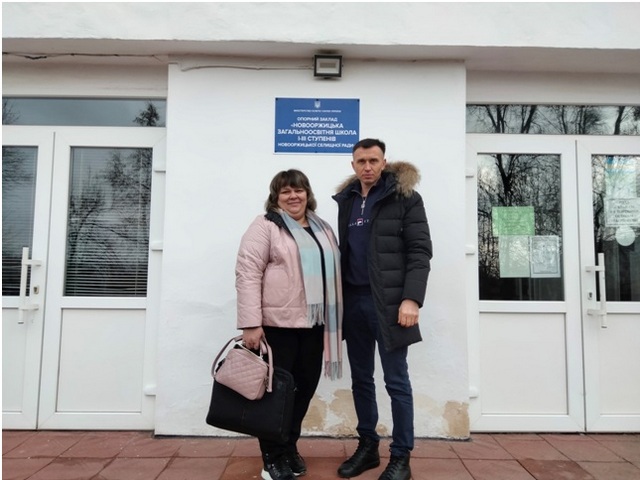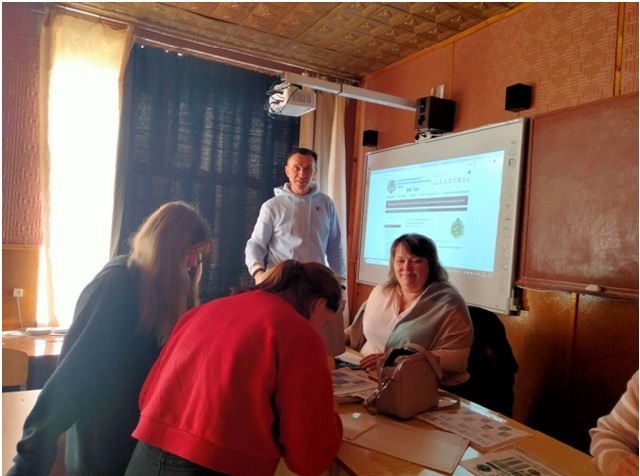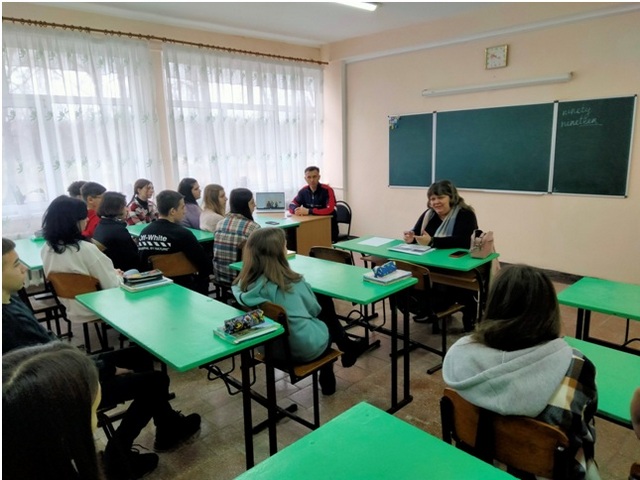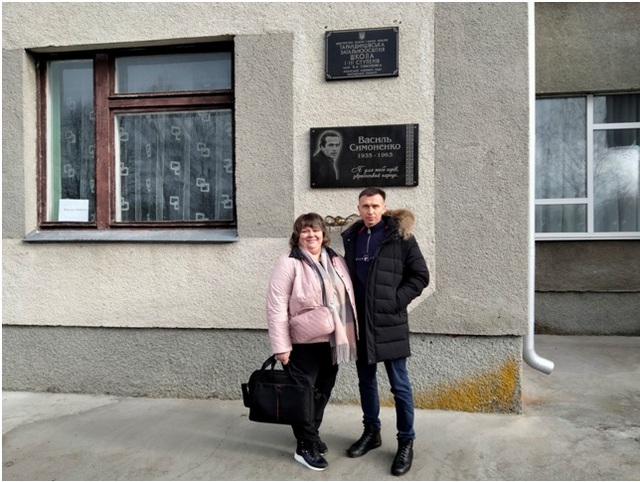Січневі профорієнтаційні заходи факультету харчових технологій та управління якістю продукції АПК
Протягом січня 2023 року викладачі університету провели профорієнтаційні заходи офлайн для учнів шкіл Новооржицької громади що на Полтавщині. Зустрічі були спрямовані на популяризацію спеціальностей університету, інформуванні про сучасну матеріальну базу університету та кадрове забезпечення освітнього і наукового процесів.








20 січня 2023 року доцент кафедри процесів і обладнання переробки продукції АПК Віктор Сарана разом із колегою, в.о. завідувача кафедри банківської справи та страхування НУБіП України Костюк Вікторією, завітали до Вишнівської ЗОШ І-ІІІ ступенів Новооржицької селищної ради.




23 січня 2023 року викладачі університету зустрілися з випускниками ОЗ «Новооржицька ЗОШ І-ІІІ ступенів Новооржицької селищної ради».


Під час зустрічей вони ознайомили учнів 9-11 класів із славетною історією університету та розповіли про правила вступу до Національного університету біоресурсів і природокористування України. Старшокласники також прослухали інформацію про перелік спеціальностей в університеті, про шанс отримати додаткові бали, пройшовши підготовчі курси, про участь в олімпіаді, яку щорічно проводить заклад, а також про можливості розвитку особистих здібностей на факультеті харчових технологій та управління якістю продукції АПК і на економічному факультеті. Також, зацікавленість майбутніх абітурієнтів викликала інформація про культурно-масову роботу, дозвілля та спортивне життя студентів університету.
Після ознайомлення з університетом Віктор Сарана і Вікторія Анатоліївна провела для старшокласників воркшоп з харчових технологій та фінансової грамотності «Мій успіх починається тут…». Учні були поділені на команди і отримували завдання, з якими успішно справилися.
24 січня 2022 року представники університету відвідали ОЗ «Тарандинцівська ЗОШ І-ІІІ ступенів ім. В.А. Симоненка Новооржицької селищної ради».


Випускники цієї школи також прослухали інформацію про перелік спеціальностей в університеті, про шанс отримати додаткові бали, пройшовши підготовчі курси, про участь в олімпіаді, яку щорічно проводить заклад, про можливості розвитку особистих здібностей в університеті. Майбутні абітурієнти проявили інтерес до міжнародних зв’язків університету, отримання подвійного диплому та можливості навчання в англомовних групах.
Представники університету провели зі старшокласниками цікаві ігри з харчових технологій і процесів: «Відгадай склад продукту», «Процеси навколо тебе» та з фінансової грамотності «Гроші люблять кмітливих», «Національна валюта». Учні були зацікавлені та активні.
Час пройшов швидко зі жвавими дискусіями. В кінці були підведені підсумки, переможців запросили на пізнавальну екскурсію факультетом харчових технологій та тижневі курси з фінансової грамотності, ініційовані кафедрою банківської справи та страхування.
Зустрічі проходили за дотримання усіх вимог, необхідних для сучасних життєвих реалій. Обговорення різних питань відбувалося у дружній атмосфері.
Всіх старшокласників запросили відвідати університет та долучитися до Дня відкритих дверей, який буде проводитися навесні, а також до урочистостей з нагоди 125-річчя Національного університету біоресурсів і природокористування України в травні цього року.
Особливу подяку за допомогу в організації зустрічі з учнями висловлюємо директорам закладів освіти Сисенко Аллі Дмитрівні, Вініченко Світлані Миколаївні та Подорожній Аллі Іванівні.
Сарана Віктор,
доцент кафедри процесів
доцент кафедри процесів
і обладнання переробки продукції АПК